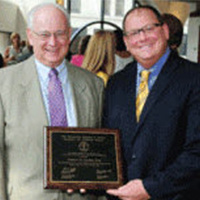Hamburg Juvenile Law Lawyer, New York
Sponsored Law Firm
-
 x
x

Click For More Info:
-
Cohen & Bernstein, L.L.C.
1360 Clifton Ave #309 Clifton, NJ 07012» view mapCriminal Defense We’re In this Together!
We work hand in hand with our clients to ensure all of your questions are answered and progress through your legal issue is seamless.
800-978-7341
Not enough matches for Hamburg Juvenile Law lawyer.
Below are all Hamburg Criminal lawyers.
Anthony M. Bruce
✓ VERIFIEDCriminal, US Courts, Traffic, Accident & Injury
Mr. Bruce’s legal career has focused on criminal litigation. For 37 years, Mr. Bruce worked as Assistant United States Attorney in the United State... (more)
Dominic Paul Candino
✓ VERIFIEDCriminal, DUI-DWI, Felony, Accident & Injury, Personal Injury
Personal injury and criminal law is a complex collection of ever-changing legislation and case law. Many of those injured by a third party's negligen... (more)
Charles A Messina
Family Law, Child Custody, Divorce & Family Law, Juvenile Law
Status: In Good Standing Licensed: 19 Years
Brian William Downey
Juvenile Law, Real Estate, Motor Vehicle, Lawsuit & Dispute, State and Local
Status: In Good Standing Licensed: 39 Years
Lisa A. Poch
Employment, Criminal, Personal Injury, Accident & Injury
Status: In Good Standing Licensed: 16 Years
Calcedonio Wade Calabrese
Real Estate, Divorce & Family Law, DUI-DWI, Criminal
Status: In Good Standing Licensed: 31 Years
Robert M. Villarini
Employment, Criminal, Business, Accident & Injury
Status: In Good Standing Licensed: 40 Years
Andrew Patrick Fleming
Other, Employment, Criminal, Personal Injury
Status: In Good Standing Licensed: 39 Years
Leonard D. Zaccagnino
Real Estate, Child Custody, Divorce & Family Law, Criminal
Status: In Good Standing Licensed: 41 Years
 Lindsay Bernstein Clifton, NJ
Lindsay Bernstein Clifton, NJ Practice AreasExpertise
Practice AreasExpertise


